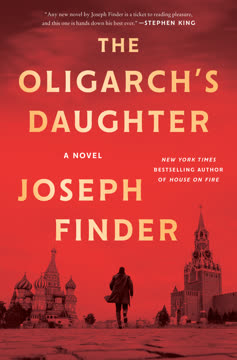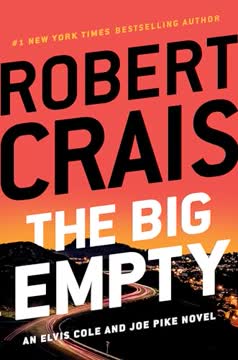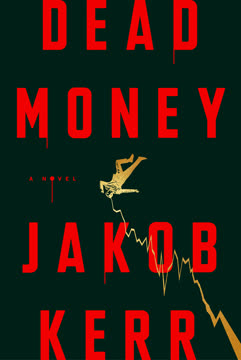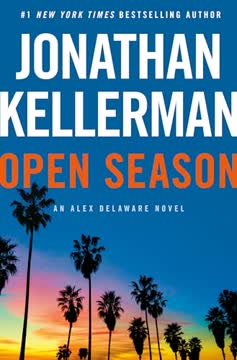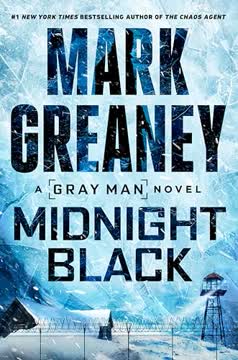Plot Summary
Grant's Fatal Charter Choice
Grant Anderson, a talented boatbuilder, finds his life irrevocably altered when he agrees to cover a fishing charter for his friend, Captain Lyle. The client, Frederick Newman, harbors sinister motives, leading to a deadly confrontation at sea. In a desperate struggle, Grant accidentally kills Newman, triggering a series of events that force him into a dangerous game of survival. This pivotal moment sets the stage for Grant's transformation from a craftsman to a fugitive, as he grapples with the moral and practical implications of his actions.
Sarah's Ignorant Bliss
Grant's girlfriend, Sarah, lives in blissful ignorance of the turmoil brewing in Grant's life. As they share a seemingly normal dinner, Sarah recounts her day, unaware of the storm raging within Grant. The tension between them grows as Grant wrestles with the decision to reveal his deadly secret, knowing it could endanger Sarah. Their relationship becomes a poignant symbol of the normalcy Grant yearns to protect, even as he is drawn deeper into a world of danger and deception.
A Call That Changes Fate
Grant's life is upended by a call from Lyle, asking him to cover a charter. This seemingly benign request spirals into a nightmare when Grant encounters Frederick Newman, whose deadly intentions force Grant into a life-or-death decision. The call sets off a chain reaction, thrusting Grant into a perilous world where he must navigate deception and survival, forever altering the course of his life.
Grant's Flight from Danger
With Newman's death looming over him, Grant realizes he must flee to avoid the consequences. He quickly devises a plan to leave his old life behind, knowing that staying would endanger both him and Sarah. As he prepares to disappear, Grant confronts the harsh reality of abandoning everything he knows. This urgent decision propels him into a high-stakes game of cat and mouse, where survival becomes his sole focus.
Russians on the Hunt
As Grant attempts to forge a new life, he is haunted by the fear that Newman's associates will seek revenge. His paranoia proves justified as Russian operatives close in, determined to find him. Grant's survival instincts are put to the test as he uses his skills to stay one step ahead. The tension mounts as the Russians draw nearer, leaving Grant with no choice but to rely on his wits and resourcefulness to evade capture.
Survival in the Wilderness
In the dense forests of New Hampshire, Grant employs every survival skill he knows to remain hidden. The wilderness serves as both a refuge and an adversary, challenging Grant with its harsh elements. With the Russians hot on his trail, Grant must remain vigilant, knowing that one misstep could lead to his downfall. As he navigates the treacherous terrain, Grant's resolve is tested, forcing him to confront the reality of his situation: survival at any cost.
Paul's Moscow Espionage
Paul Brightman, under the alias "Langfitt," navigates the perilous streets of Moscow, guided by an FBI contact. He meets an American tourist, Andrew, at the Tretyakov Gallery, who secretly hands him a key card. This leads Paul to a nearby apartment where Andrew, now revealed as Aaron, an FBI agent, tasks him with planting a tracker in Arkady Galkin's briefcase. The mission is fraught with danger, as Paul must navigate the treacherous world of espionage, knowing that any misstep could be fatal.
Art Gallery Intrigue
At the Tretyakov Gallery, Paul encounters Andrew, who shares the story of Princess Tarakanova, a historical figure who was betrayed and imprisoned. This tale mirrors Paul's own precarious situation. Andrew discreetly passes Paul a key card, hinting at a deeper conspiracy involving Russian oligarchs and the CIA. The gallery, filled with art and tourists, becomes a backdrop for espionage, as Paul realizes the gravity of his mission and the potential consequences of failure.
Coded Messages and Pursuit
After retrieving the key card, Paul contacts Aaron, who warns him of a change in plans. Paul is instructed to meet at a new location, but the tension escalates as he senses he is being followed. The city becomes a labyrinth of danger, with Paul narrowly evading capture. The coded message and the chase through Moscow's streets highlight the high stakes of his mission and the constant threat of betrayal.
Dinner of Deception
Paul attends a dinner with Arkady Galkin and other influential figures, where the opulence of the yacht contrasts with the underlying tension. Conversations hint at Galkin's connections to the Kremlin and the CIA. Paul learns of a mysterious figure, Natasha Obolensky, linked to Galkin's financial empire. The dinner serves as a turning point, revealing the complex web of alliances and the dangerous game Paul is entangled in.
The Phantom Drive's Secrets
With the help of his father, Stan, and a former student, Paul decrypts the Phantom drive, uncovering a trove of emails between Galkin and CIA officer Geraldine Dempsey. The drive reveals a covert operation, Phantom, involving financial manipulation and espionage. This discovery exposes the depth of corruption and the lengths to which powerful entities will go to protect their interests, placing Paul in even greater peril.
Showdown in the Woods
Paul and Galkin confront Dempsey in a CIA safe house, where tensions culminate in a violent standoff. Galkin, feeling betrayed, turns on Dempsey, leading to a fatal exchange of gunfire. The confrontation reveals the true extent of Dempsey's operations and the personal cost of espionage. As the dust settles, Paul is left to navigate the aftermath, grappling with the moral complexities of his actions and the uncertain future ahead.
Characters
Grant Anderson
Grant Anderson is a skilled boatbuilder whose life is upended when he accidentally kills a man during a charter. Haunted by the incident, Grant is forced to flee, leaving behind his girlfriend, Sarah, and the life he knows. As he navigates the dangerous world of survival, Grant's resourcefulness and determination are put to the test. His internal struggle between protecting those he loves and the need to stay hidden drives the narrative, making him a complex and compelling protagonist.
Sarah Harrison
Sarah Harrison is Grant's girlfriend, a first-grade teacher with a gentle demeanor and a strong core. Unaware of the turmoil in Grant's life, Sarah becomes an unwitting participant in his dangerous game of survival. Her relationship with Grant is strained by the secrets he keeps, and her safety becomes a primary concern for him. Sarah's character represents the normalcy and stability that Grant yearns to return to, adding emotional depth to the story.
Frederick Newman
Frederick Newman is a mysterious and dangerous man who hires Grant for a fishing charter with deadly intentions. His confrontation with Grant sets off a chain of events that forces Grant into hiding. Newman's character serves as the catalyst for the story, his death propelling Grant into a world of danger and deception. His presence looms over the narrative, representing the threat that Grant must constantly evade.
Lyle Boudreaux
Lyle Boudreaux, known as Captain Lyle, is a friend of Grant's who inadvertently sets the story in motion by asking Grant to cover a charter. His request, seemingly innocuous, leads to the deadly encounter with Frederick Newman. Lyle's character highlights the unpredictability of life and the unintended consequences of seemingly simple actions.
Andrei Berzin
Andrei Berzin is a former FSB officer and the chief of security for a Russian oligarch. Tasked with finding Grant, Berzin is a formidable adversary, using his skills and resources to track Grant down. His character embodies the relentless pursuit of justice—or vengeance—adding tension and urgency to Grant's flight.
Paul Brightman
Paul is a former Wall Street analyst turned fugitive, navigating a world of espionage and betrayal. His journey from Moscow to the U.S. reveals his resourcefulness and moral struggle as he uncovers a conspiracy involving Russian oligarchs and the CIA. Paul's character is defined by his determination to survive and protect those he cares about, even as he grapples with the ethical implications of his actions.
Arkady Galkin
Galkin is a Russian billionaire with deep ties to both the Kremlin and the CIA. His financial empire is built on a foundation of espionage and manipulation. As the story unfolds, Galkin's true allegiances are questioned, and his relationship with Paul becomes increasingly complex. Galkin's character embodies the duality of power and vulnerability in the world of international intrigue.
Geraldine Dempsey
Dempsey is a high-ranking CIA official orchestrating a covert operation known as Phantom. Her ruthless pursuit of power and control leads to a series of deadly events, including the massacre of FBI agents. Dempsey's character is a study in ambition and moral ambiguity, as she navigates the treacherous waters of espionage with a singular focus on her objectives.
Stan Brightman
Stan is Paul's estranged father, living off the grid in the wilderness. His expertise in survival and cryptography becomes crucial in decrypting the Phantom drive. Stan's character provides a link to Paul's past and a source of unexpected support, highlighting the complexities of their relationship and the enduring bonds of family.
Tatyana Galkin
Tatyana is caught between her loyalty to her father, Arkady, and her love for Paul. Her character represents the personal cost of espionage, as she navigates the fallout of her family's involvement in global intrigue. Tatyana's journey is one of self-discovery and reconciliation, as she grapples with the choices that define her future.
Plot Devices
The Charter Gone Wrong
The fishing charter with Frederick Newman serves as the inciting incident that propels Grant into a life of danger and survival. This plot device introduces the central conflict and sets the stage for the high-stakes game of cat and mouse that follows. The charter gone wrong is a pivotal moment that forces Grant to confront his own morality and the lengths he will go to protect himself and those he loves.
The Wilderness as Refuge and Enemy
The dense forests of New Hampshire play a crucial role in Grant's story, serving as both a refuge and an enemy. The wilderness provides Grant with the cover he needs to evade capture, but it also presents its own set of challenges and dangers. This plot device highlights Grant's resourcefulness and survival skills, adding tension and depth to the narrative as he navigates the treacherous terrain.
The Russians' Relentless Pursuit
The pursuit by Russian operatives adds a layer of urgency and danger to Grant's story. Their relentless search for him forces Grant to stay one step ahead, using his wits and skills to survive. This plot device creates a sense of constant tension and suspense, keeping readers engaged as they follow Grant's journey through a world of deception and danger.
The Phantom Drive
The Phantom drive is a central plot device, containing encrypted emails that reveal a covert CIA operation. Its decryption exposes the depth of corruption and espionage, driving the narrative forward and placing Paul in grave danger. The drive symbolizes the power of information and the lengths to which individuals will go to protect or exploit it.
The Safe House
The CIA safe house serves as the backdrop for the story's climactic confrontation. It is a place of secrecy and betrayal, where alliances are tested, and truths are revealed. The safe house represents the hidden world of espionage, where the line between friend and foe is blurred, and the stakes are life and death.
Analysis
"The Oligarch's Daughter" by Joseph Finder is a gripping narrative that explores themes of survival, deception, and the moral complexities of espionage. Through the intertwined stories of Grant Anderson and Paul Brightman, the novel delves into the personal and ethical dilemmas faced by individuals caught in a web of international intrigue. The book highlights the lengths to which people will go to protect themselves and their loved ones, even as they navigate a world where trust is scarce and danger is ever-present. Finder's storytelling captures the tension and urgency of a high-stakes game of cat and mouse, offering readers a thrilling exploration of the human spirit's resilience in the face of overwhelming odds.
Last updated:
FAQ
Synopsis & Basic Details
What is The Oligarch's Daughter about?
- A Fugitive's Desperate Flight: The Oligarch's Daughter follows Paul Brightman, a former Wall Street analyst, who is forced to assume a new identity as Grant Anderson after a deadly encounter at sea. He becomes a boatbuilder in rural New Hampshire, living a quiet life until his past catches up to him, forcing him back on the run from relentless Russian operatives.
- Unraveling a Global Conspiracy: The narrative then delves into Paul's past, revealing his marriage to Tatyana Galkin, the daughter of a powerful Russian oligarch, Arkady Galkin. Paul's journey takes him deep into a world of international finance, espionage, and betrayal, as he uncovers his father-in-law's hidden connections to the Kremlin and a shadowy CIA operation.
- The Quest for Truth and Survival: The story culminates in Paul's desperate attempt to expose the truth behind the conspiracy, protect his estranged family, and secure his own freedom. It's a high-stakes thriller exploring themes of identity, loyalty, and the moral compromises made in the pursuit of power and survival.
Why should I read The Oligarch's Daughter?
- Intricate Espionage & Financial Intrigue: Readers who enjoy complex thrillers will appreciate the novel's deep dive into the murky world of Russian oligarchs, CIA black ops, and high-stakes financial manipulation. The plot is meticulously crafted, offering twists and turns that keep you guessing until the very end.
- Deep Psychological Exploration: The story offers a compelling psychological portrait of Paul Brightman, a man constantly grappling with his identity, guilt, and the moral compromises he's forced to make. His internal struggles add significant depth, making him a relatable protagonist despite his extraordinary circumstances.
- Masterful Pacing & Suspense: Joseph Finder expertly builds tension, alternating between Paul's present-day flight and his past entanglement with the Galkin family. This dual timeline structure creates a relentless sense of urgency and suspense, making it a true page-turner.
What is the background of The Oligarch's Daughter?
- Post-Cold War Geopolitics: The novel is set against the backdrop of contemporary U.S.-Russia relations, exploring the lingering shadows of the Cold War and the rise of Russian oligarchs. It touches upon themes of Russian influence in Western politics and finance, reflecting real-world concerns about espionage and money laundering.
- The Digital Age of Surveillance: A significant background element is the pervasive nature of modern surveillance, from CCTV cameras with facial recognition to phone tracking and digital footprints. This technological backdrop underscores the difficulty of truly disappearing in the 21st century, a central challenge for Paul Brightman.
- Author's Expertise in Espionage: Joseph Finder, known for his thrillers, studied Russian at Yale and Harvard and was recruited by the CIA. This personal background lends authenticity to the novel's portrayal of intelligence operations, Russian culture, and the psychological toll of espionage, enriching the narrative with informed detail.
What are the most memorable quotes in The Oligarch's Daughter?
- "The Russian soul is a dark place.": This epigraph, attributed to Fyodor Dostoyevsky, immediately sets a foreboding tone for the novel, hinting at the moral ambiguities and hidden depths of the Russian characters and the complex geopolitical landscape explored. It foreshadows the darkness Paul will encounter.
- "A puppet thinks he is free if he loves his strings.": Arkady Galkin's cynical observation to Paul during dinner in Moscow encapsulates a core theme of control and perceived freedom. This quote highlights the manipulative power dynamics at play, suggesting that even the most powerful individuals, like Galkin himself, might be controlled by unseen forces.
- "A thousand days of evasion is better than one day of captivity.": Paul's father, Stan Brightman, imparts this wisdom from his Vietnam War experience, which becomes Paul's guiding principle throughout his desperate flight. This quote underscores the novel's central theme of survival and the lengths one will go to avoid capture and maintain autonomy.
What writing style, narrative choices, and literary techniques does Joseph Finder use?
- Dual Timeline Narrative: Finder employs a compelling dual timeline structure, alternating between Paul Brightman's present-day flight as "Grant Anderson" and his past life leading up to his disappearance. This technique builds suspense by gradually revealing the events that forced him into hiding, keeping readers constantly engaged with "what happened next" and "how did he get here."
- First-Person Perspective (Implied): While not strictly first-person, the narrative often aligns closely with Paul's internal thoughts and anxieties, creating a strong sense of immediacy and psychological depth. This allows readers to experience his paranoia, guilt, and moral dilemmas directly, enhancing empathy and tension.
- Rich Detail and Authenticity: Finder integrates meticulous research into finance, espionage, survivalism, and Russian culture. From descriptions of boatbuilding and wilderness survival techniques to the intricacies of financial markets and CIA black ops, the novel is grounded in realistic detail, lending credibility and immersion to the high-stakes plot. This is evident in the detailed descriptions of the yacht, the Moscow Metro, and the specific hacking tools mentioned.
Hidden Details & Subtle Connections
What are some minor details that add significant meaning?
- The Upside-Down Welcome Mat: Upon returning to Tatyana's apartment, Paul notices their welcome mat is turned upside down, a subtle but chilling signal that their home has been breached. This seemingly minor detail, often used by intelligence agencies, immediately confirms Paul's paranoia and signifies the end of his perceived safety.
- Tatyana's Czar Nicholas II Penknife: Tatyana's casual use of a jeweled gold penknife, which she claims belonged to Czar Nicholas II, is a subtle nod to her family's immense wealth and deep, perhaps illicit, connections to Russian history and power. It hints at the Galkin family's true status long before Paul fully understands it.
- The Monogrammed Yacht Towels: The changing monograms on Arkady Galkin's yacht towels (from 'G' for Galina to 'I' for Irina, then back to 'G' for Galkin himself) subtly reveals the oligarch's personal history and his competitive, almost transactional, approach to relationships, even with his wives. It also foreshadows his ultimate detachment from personal sentimentality.
What are some subtle foreshadowing and callbacks?
- Pechorin's Dual Nature: The yacht's name, "Pechorin," from Lermontov's "A Hero of Our Time," is initially presented as a symbol of bravery. However, Ilya Bondarenko later reveals Pechorin to be "arrogant and cynical. A destroyer of lives. A shithead. A moral cripple." This foreshadows Arkady Galkin's own complex, morally ambiguous character and his ultimate betrayal by the CIA.
- The "Pochemuchka" Warning: Eugene Frost's seemingly innocuous story about "Alyosha Pochemuchka," the Soviet-era child who asked too many questions, serves as a chilling warning to Paul. It subtly foreshadows the dangers of his relentless curiosity and the severe consequences he faces for digging too deep into Galkin's affairs, especially in a world where "pochemuchkas" are not tolerated.
- Stan Brightman's Survivalist Maxims: Paul's father's seemingly eccentric survivalist sayings, like "Fire is the difference between eating lunch and being lunch" or "Rain is the perfect cover," initially appear as quirky character details. However, they become crucial survival tools and mental anchors for Paul during his desperate flight through the wilderness, demonstrating the unexpected utility of his estranged father's teachings.
What are some unexpected character connections?
- Berzin as a CIA Asset: The revelation that Andrei Berzin, Galkin's ruthless security chief and Paul's relentless pursuer, was actually a long-term CIA asset controlled by Geraldine Dempsey, is a major twist. This unexpected connection completely recontextualizes his actions, showing that his loyalty was not to Galkin but to a deeper, more insidious agenda.
- Ludmilla Zaitseva's Role: The blind, elderly former professor, Ludmilla Zaitseva, initially appears as a bitter, discarded figure from Galkin's past. However, she is revealed to be the "talent scout" who recruited Galkin for the Kremlin (and later, the CIA), making her a pivotal, albeit forgotten, architect of his rise and a key to understanding the origins of the Phantom operation.
- Ambassador Gillette's FBI Connection: Ambassador John R. Gillette, Paul's college friend's father, is introduced as a highly connected former FBI and CIA director. His initial reluctance to help Paul, followed by his call to the FBI director, inadvertently reveals the depth of the conspiracy against Paul and the CIA's infiltration of the FBI, highlighting the pervasive corruption.
Who are the most significant supporting characters?
- Stan Brightman (Paul's Father): Stan, initially portrayed as an eccentric, estranged survivalist, becomes a crucial "trail angel" and an unexpected ally. His deep knowledge of wilderness survival, cryptography, and anti-government philosophy directly saves Paul's life and helps decrypt the Phantom drive, revealing his profound influence despite their strained relationship. His sacrifice for Paul is a pivotal emotional turning point.
- Geraldine Dempsey (CIA Officer): Dempsey is the architect and head of the clandestine "Phantom" unit within the CIA, and Galkin's case officer. Her ruthless pragmatism and willingness to commit extreme acts, including the murder of FBI agents, make her the primary antagonist. Her character embodies the moral decay within intelligence agencies and the dangerous pursuit of national security at any cost.
- Stephanie Trombley (FBI Agent): Trombley, initially a junior FBI agent, evolves into Paul's most reliable ally within law enforcement. Her personal connection to the murdered Agent Addison fuels her determination to expose Dempsey. She represents the integrity within the FBI, ultimately helping Paul bring Dempsey to justice and offering him a path to a new life.
- Eugene Frost (AGF Senior Managing Director): Frost, Galkin's right-hand man and the firm's senior managing director, serves as a constant source of pressure and veiled threats for Paul. His role in enforcing Galkin's illicit directives and his suspicious nature make him a key figure in the corporate espionage subplot, highlighting the pervasive surveillance and control within AGF.
Psychological, Emotional, & Relational Analysis
What are some unspoken motivations of the characters?
- Paul's Need for Validation: Beneath Paul's ambition and desire for financial security lies an unspoken motivation to prove his worth, particularly to himself and perhaps subconsciously to his absent father. His initial drive to succeed on Wall Street and his later insistence on earning his own way, even rejecting Galkin's lavish gifts, stems from a deep-seated need for self-reliance and integrity, contrasting with his father's perceived failures. This is a key aspect of Paul Brightman's motivations.
- Tatyana's Quest for Authentic Identity: Tatyana's choice to live modestly, use her mother's surname, and pursue photography, despite her immense wealth, is driven by an unspoken desire to forge an identity independent of her oligarch father. She yearns for genuine connection and validation for her artistic talent, rather than being defined by her family's money or influence, a central theme in Tatyana Galkin's character analysis.
- Arkady Galkin's Desire for Legacy and Control: While Galkin projects an image of a self-made man, his deep-seated motivation is to secure his legacy and maintain control, both over his family and his carefully constructed empire. His lavish gifts and attempts to dictate Paul and Tatyana's lives are not just generosity but a means to bind them to him, ensuring his influence endures, even as his power wanes. This is crucial for understanding Arkady Galkin's motivations.
What psychological complexities do the characters exhibit?
- Paul's Guilt and Moral Compromise: Paul exhibits profound psychological complexity, particularly through his pervasive guilt after killing Frederick Newman and his subsequent cooperation with the FBI. He struggles with the moral implications of betraying Tatyana's father, even as he recognizes the necessity for his own survival. This internal conflict, oscillating between self-preservation and loyalty, drives much of his emotional turmoil and decision-making.
- Tatyana's Abandonment Issues and Conflicted Loyalty: Tatyana's recurring nightmares about being abandoned by her parents reveal deep-seated separation anxiety, a psychological complexity that influences her fierce loyalty to her family, even when it conflicts with her love for Paul. Her eventual choice to side with her father, despite his flaws, stems from this profound need for familial security, making her a complex and tragic figure.
- Galkin's Charismatic Manipulation and Paranoia: Arkady Galkin is a psychologically complex character, blending outward joviality and generosity with ruthless manipulation and deep-seated paranoia. His "puppet" metaphor, initially applied to others, subtly reflects his own awareness of being controlled. His need for constant surveillance and his willingness to use violence underscore a profound distrust of the world, a common trait among powerful oligarchs.
What are the major emotional turning points?
- Paul's Accidental Killing of Newman: The accidental death of Frederick Newman is the initial emotional turning point, plunging Paul into a state of shock, guilt, and terror. This event shatters his normal life, forcing him to confront his capacity for violence and initiating his desperate flight, fundamentally altering his psychological landscape.
- Tatyana's Betrayal with the Poisoned Tea: Tatyana's complicity in Berzin's attempt to poison Paul with the tea is a devastating emotional turning point. For Paul, it confirms her ultimate loyalty to her family over him, shattering his trust and forcing him to accept the end of their marriage. For Tatyana, it's a moment of profound moral compromise, revealing the depth of her commitment to her Galkin identity.
- Stan Brightman's Sacrifice: Stan Brightman's deliberate act of drawing the FBI agent's fire to allow Paul to escape is a powerful emotional climax. This selfless sacrifice, from a father Paul had long resented and felt abandoned by, provides a moment of profound reconciliation and understanding, transforming Paul's perception of his father and imbuing his subsequent actions with a renewed sense of purpose.
How do relationship dynamics evolve?
- Paul and Tatyana: From Love to Betrayal: Their relationship evolves from passionate romance, marked by Tatyana's initial desire for an authentic life away from her father's influence, to a tragic betrayal. Paul's discovery of Galkin's true nature and Tatyana's ultimate loyalty to her family, culminating in her complicity in the poisoning attempt, irrevocably shatters their bond, leading to their separation and Paul's profound disillusionment.
- Paul and Arkady Galkin: From Suspicion to Mutual Exploitation: Initially, Paul views Galkin with a mix of suspicion and grudging respect, seeing him as a powerful but flawed father figure. Galkin, in turn, sees Paul as a valuable asset. Their dynamic evolves into one of mutual exploitation, with Paul gathering intelligence for the FBI and Galkin attempting to control Paul through gifts and threats. This culminates in Galkin's desperate, final act of defiance against Dempsey, which Paul witnesses.
- Paul and Stan Brightman: From Estrangement to Redemption: The relationship between Paul and his father, Stan, undergoes a significant transformation from decades of estrangement and resentment to a poignant moment of understanding and sacrifice. Stan's survivalist skills and eventual self-sacrifice for Paul's escape provide a powerful, albeit brief, redemption for their fractured past, allowing Paul to finally see his father's love and integrity.
Interpretation & Debate
Which parts of the story remain ambiguous or open-ended?
- The Full Extent of CIA Corruption: While Geraldine Dempsey is arrested, the novel leaves ambiguous how many other high-ranking officials within the CIA or other government agencies were aware of or complicit in the "Phantom" operation and the FBI massacre. The "cleaning house" mentioned by Trombley suggests a broader cover-up, but the true depth of institutional corruption remains open to interpretation.
- Tatyana's Future and True Allegiance: Despite her final reconciliation with Paul and her move to Derryfield, Tatyana's long-term future remains somewhat open-ended. Her deep-seated loyalty to her family and her past life as an oligarch's daughter suggest that fully embracing a "simpler life" might be a continuous struggle, leaving readers to ponder whether she can truly shed her Galkin identity.
- The Phantom Drive's Complete Contents: Although Paul decrypts the Phantom drive and learns of Galkin's role as a CIA asset, the full, granular details of the "invaluable intelligence" it contained and the "new modalities in espionage" developed by the Phantom unit are never fully revealed. This maintains a sense of mystery around the true scope of the operation and its long-term implications.
What are some debatable, controversial scenes or moments in The Oligarch's Daughter?
- The FBI Massacre by CIA Operatives: The most controversial moment is the revelation that the massacre of FBI agents in New York was orchestrated by Geraldine Dempsey's CIA "Phantom" unit, using hired Russian thugs, to cover up Galkin's role as a mole. This challenges conventional notions of inter-agency cooperation and national security, sparking debate about the ethical boundaries of intelligence operations and the potential for extreme measures within the U.S. government.
- Tatyana's Complicity in Paul's Poisoning: Tatyana's apparent knowledge and cooperation with Berzin's plan to sedate Paul with poisoned tea is a highly debatable scene. While she later claims it was a sedative, not a lethal poison, her initial silence and Paul's perception of betrayal raise questions about her moral compass and the extent to which she would go to protect her family, even at Paul's expense.
- Stan Brightman's Sacrifice and Paul's Escape: Stan Brightman's decision to draw fire from the FBI agent, leading to his death, is a controversial act. While it allows Paul to escape, it forces readers to confront the moral ambiguity of sacrificing one's life for another, especially given Stan's past abandonment of Paul. It sparks debate about whether his death was a heroic act of love or a reckless, unnecessary sacrifice.
The Oligarch's Daughter Ending Explained: How It Ends & What It Means
- Justice and a New Beginning: The Oligarch's Daughter ending explained sees Geraldine Dempsey arrested and facing a long prison sentence for the FBI massacre, thanks to Paul's recorded confession. Paul's charges are dismissed, allowing him to return to a quiet life as a boatbuilder in New Hampshire. This signifies a triumph of justice, albeit a complex one, and Paul's successful escape from the world of espionage.
- Reconciliation and a Simpler Life: Paul and Tatyana reconcile, with Tatyana choosing to live with Paul in his farmhouse in Derryfield, embracing a simpler life away from her family's wealth and influence. Her brother, Niko, also finds a new, authentic relationship. This ending suggests a theme of redemption and the possibility of finding genuine happiness and identity outside of material possessions and power.
- The Enduring Shadows of Power: Despite the seemingly happy ending, the narrative subtly acknowledges that the shadows of the past and the complexities of power remain. Trombley's stern warning to Paul and Tatyana about revealing the truth, and the ambiguity surrounding the full extent of CIA corruption, imply that some secrets are too dangerous to fully expose, even for justice. The ending of The Oligarch's Daughter highlights that while individual lives can find peace, the larger systems of power continue to operate with their own hidden agendas.
Review Summary
The Oligarch's Daughter is a fast-paced spy thriller by Joseph Finder. The story follows Paul Brightman, who falls in love with a Russian oligarch's daughter and becomes entangled in a dangerous world of espionage and financial intrigue. Readers praised the book's suspenseful plot, authentic details, and complex characters, though some found it predictable or clichéd. Many enjoyed the dual timeline structure and Paul's struggle to survive while on the run. Overall, the novel received positive reviews for its thrilling narrative and exploration of themes like trust and power.
Similar Books
Download PDF
Download EPUB
.epub digital book format is ideal for reading ebooks on phones, tablets, and e-readers.
